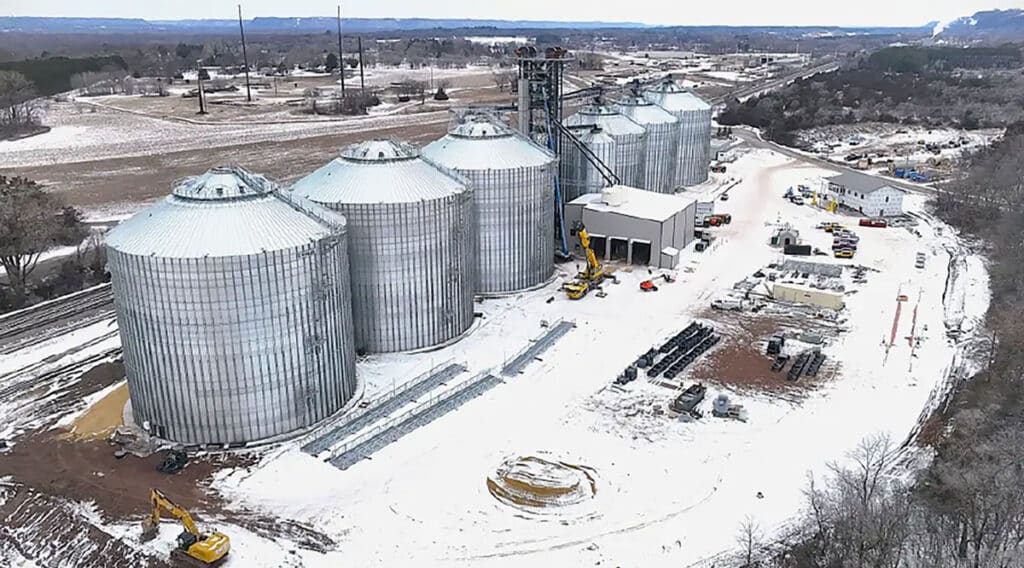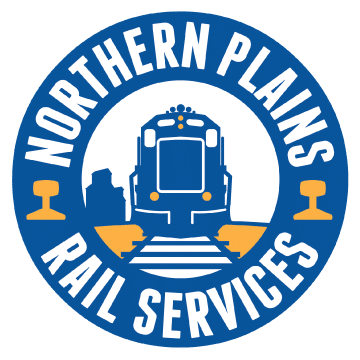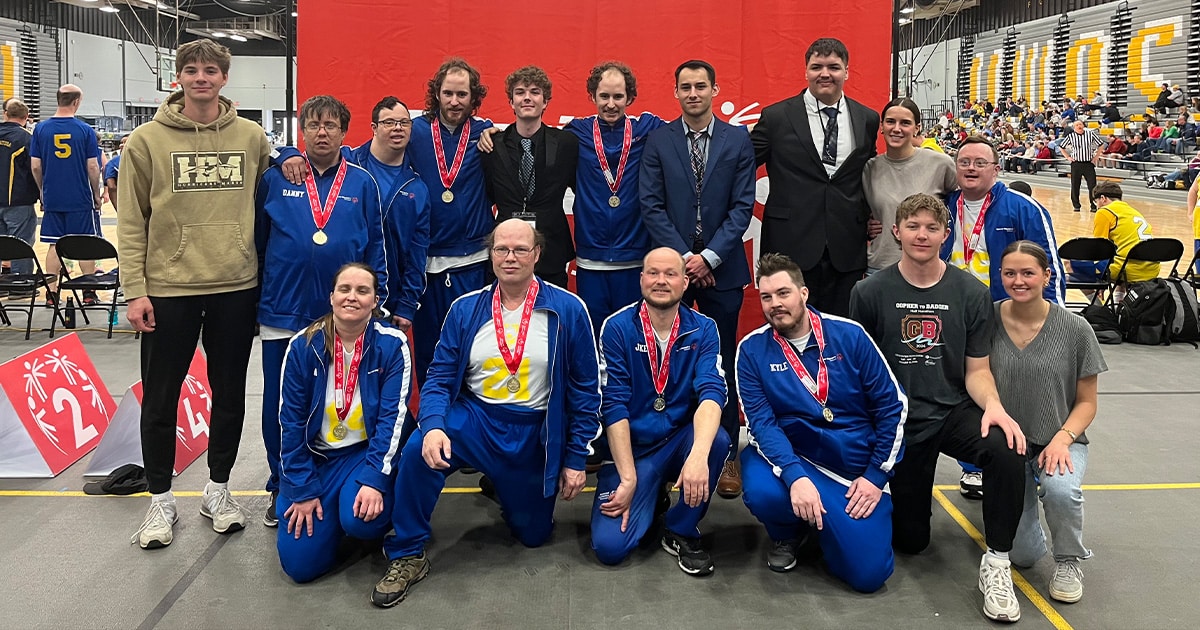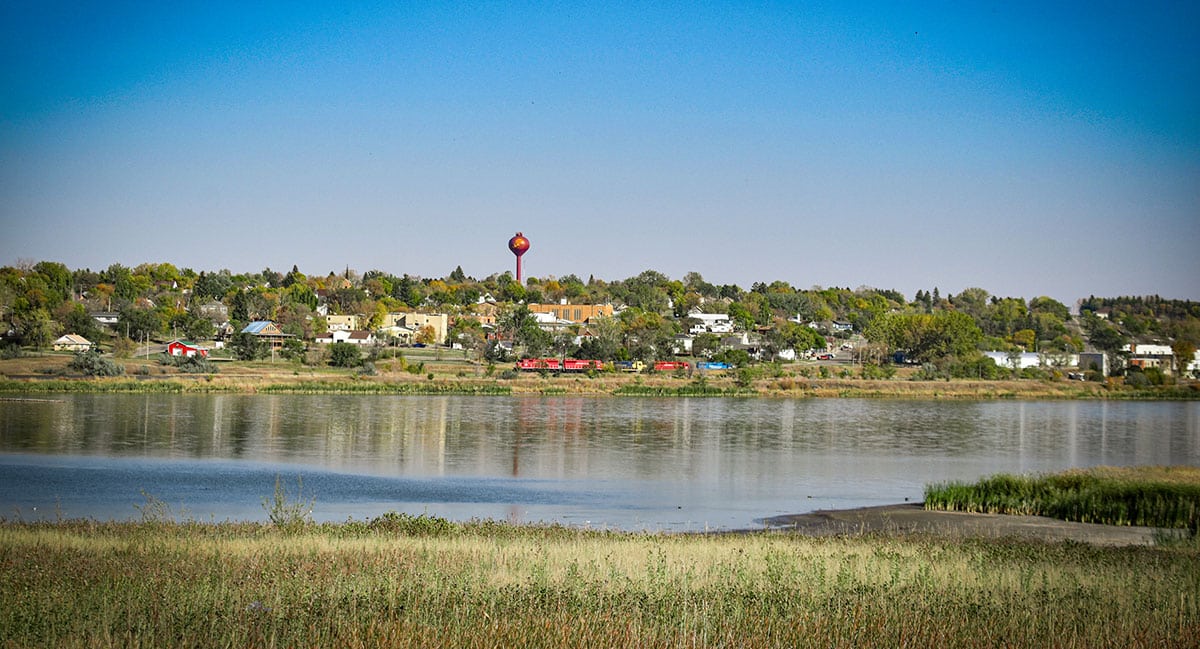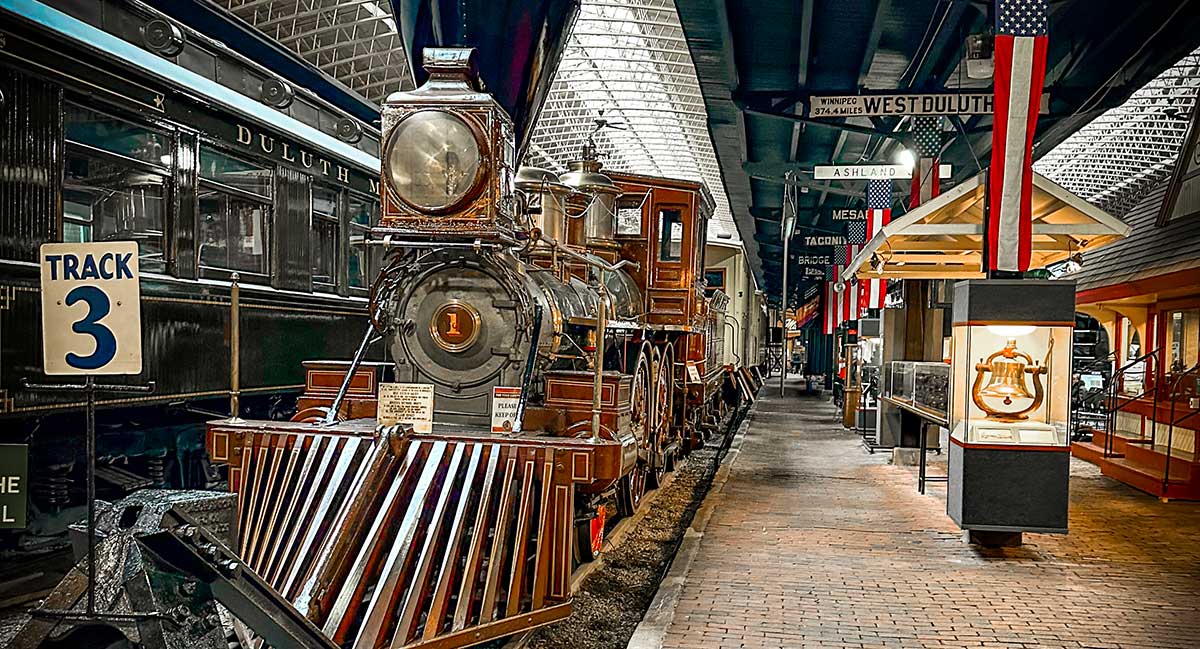
How Northern Plains Rail Services Powers Agricultural Growth with Track Work, Locomotives, and Safety Training
Northern Plains Provides Track Work, Locomotives, and Safety Training to New Agricultural Industries
Located in Hager City, WI, ALCIVIA, a member-owned agricultural and energy cooperative recently opened a new shuttle-loading grain elevator facility in Wisconsin, served by the BNSF Railway.
Northern Plains Rail Services was excited to join over 300 guests attending the March opening of the grain elevator facility. Randy Pottinger, of our NPRS Complete Track Works group, and Ted Jakubiak, our Senior Marketing and Sales Representative, were honored to attend and celebrate with ALCIVIA. NPRS was pleased to be a partner in the construction of the industry track that now ensures efficient rail service to this expanded facility, as well as supplying an SD40-2 locomotive to switch the cars as they are moved and loaded. In addition, Northern Plains Rail Training is providing industrial locomotive operations and rail safety training for ALCIVIA employees at the expanded facility.
The facility features eight newly completed grain bins capable of storing 3.9 million bushels of grain, alongside two 4,700-bushel-per-hour grain dryers and three 1,500-bushel-capacity dump pits. Those features will enable a combined grain handling speed of 60,000 bushels per hour, significantly reducing long lines and wait times.
In addition to the ALCIVIA Co-operative project, NPRS was active at the new North Dakota Soybean Processing plant located at Casselton, ND, this past year. This state-of-the-art soybean crushing plant features industry tracks off BNSF Railway that were constructed by NPRS, and two more locomotives that were prepared for service at our NPRS shops. “We were pleased that both ALCIVIA and North Dakota Soybean Processing gave NPRS the opportunities to build, supply locomotives, and provide our expertise with safety and operational training,” remarked Dan Mack, NPRS Chief Marketing Officer. “We’ve had an excellent relationship with both—and we hope to carry that forward long into the future as these businesses grow and serve the agricultural communities in the entire upper Midwest.”
